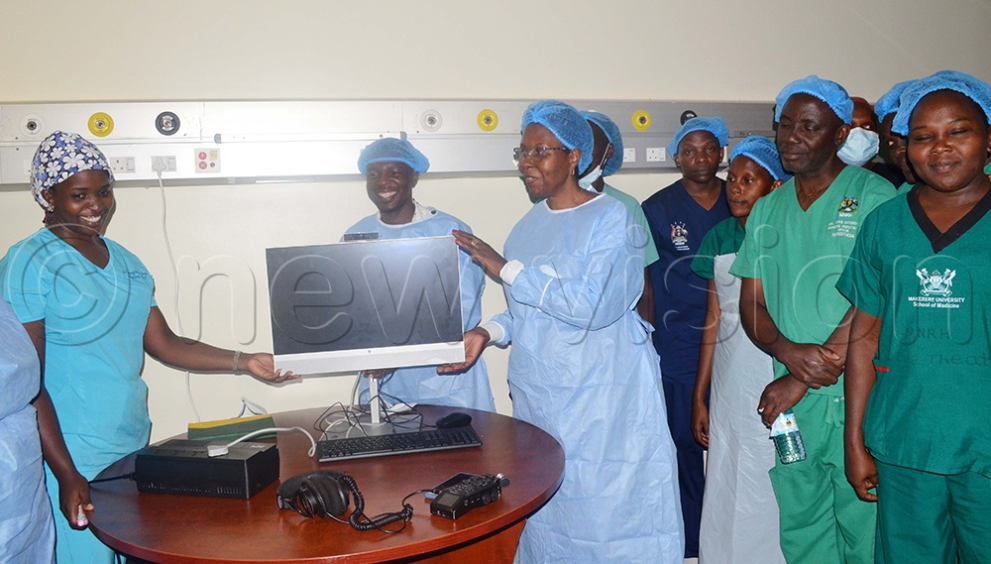Mulago National Referral Hospital Adopts Advanced IT System for Safer Surgeries

Mulago National Referral Hospital has launched a computerized system to enhance surgical safety and efficiency by digitizing the WHO Surgical Safety Checklist, improving team communication, and reducing errors.

Mulago National Referral Hospital has officially launched a groundbreaking innovation designed to reduce human surgical errors and enhance the overall efficiency of surgical procedures.
This cutting-edge technology integrates a computer system with a comprehensive database to record patient information and details about the surgical team, including surgeons, nurses, and anaesthetists. The system aims to streamline operations both during and after surgical procedures.
Dianah Aineomugisha, the implementer of the World Health Organization (WHO) Surgical Safety Checklist project at Mulago Hospital and a nursing officer, explained the significance of this tool in improving operating room services.
“Patient details will be recorded at the entrance of the theatre, along with their health information. All equipment, including surgical tools, nurses, anesthetists, and doctors, will be logged into the system,” Aineomugisha stated. “Before the operation, all equipment will be counted and entered into the system. A recount will also be conducted after the procedure to ensure nothing is left behind.”
The WHO Surgical Safety Checklist, introduced in 2008, aims to improve the safety of patients undergoing surgery by ensuring critical tasks are completed before and after a procedure. It has been instrumental in reducing the risk of adverse events such as retained surgical instruments and infections.
Aineomugisha emphasized that the new system will help theatre staff work more responsibly, enhance patient safety, and prevent incidents like leaving surgical tools inside patients. “This innovation will improve patient safety, reduce complications, and enhance communication among theatre teams. By digitizing theatre operations, we are ensuring that all patient-related data is securely stored in the system rather than relying on physical files,” she added.
Health workers underscored the importance of this initiative in advancing data management and fostering effective communication among surgical teams. “Communication is critical in the operating theatre, and this tool will significantly enhance team coordination,” Aineomugisha noted.
Speaking during the equipment handover on January 6, 2024, Dr. Rosemary Byanyima, the Executive Director of Mulago National Referral Hospital, highlighted that the checklist ensures patient safety during surgeries by tracking instruments and surgical items such as swabs.
“In the past, we used whiteboards in theatres to tally instruments and swabs during operations. This new IT system will digitize the process, enabling accurate tracking of instruments and swabs, thereby enhancing safety and efficiency,” Byanyima explained.
The system represents a significant shift from manual to digital processes, a transition praised by Justus Menya, the hospital’s data manager. “This innovation demonstrates how the hospital is modernizing its operations to ease the workload for surgeons and theatre staff,” he remarked.
Sarah Achiro from the Korea Foundation for International Healthcare (KOFIH)-Uganda, a partner in this project, noted that KOFIH has been supporting Mulago Hospital since 2017 by training health workers in various fields and implementing initiatives to improve healthcare delivery.







